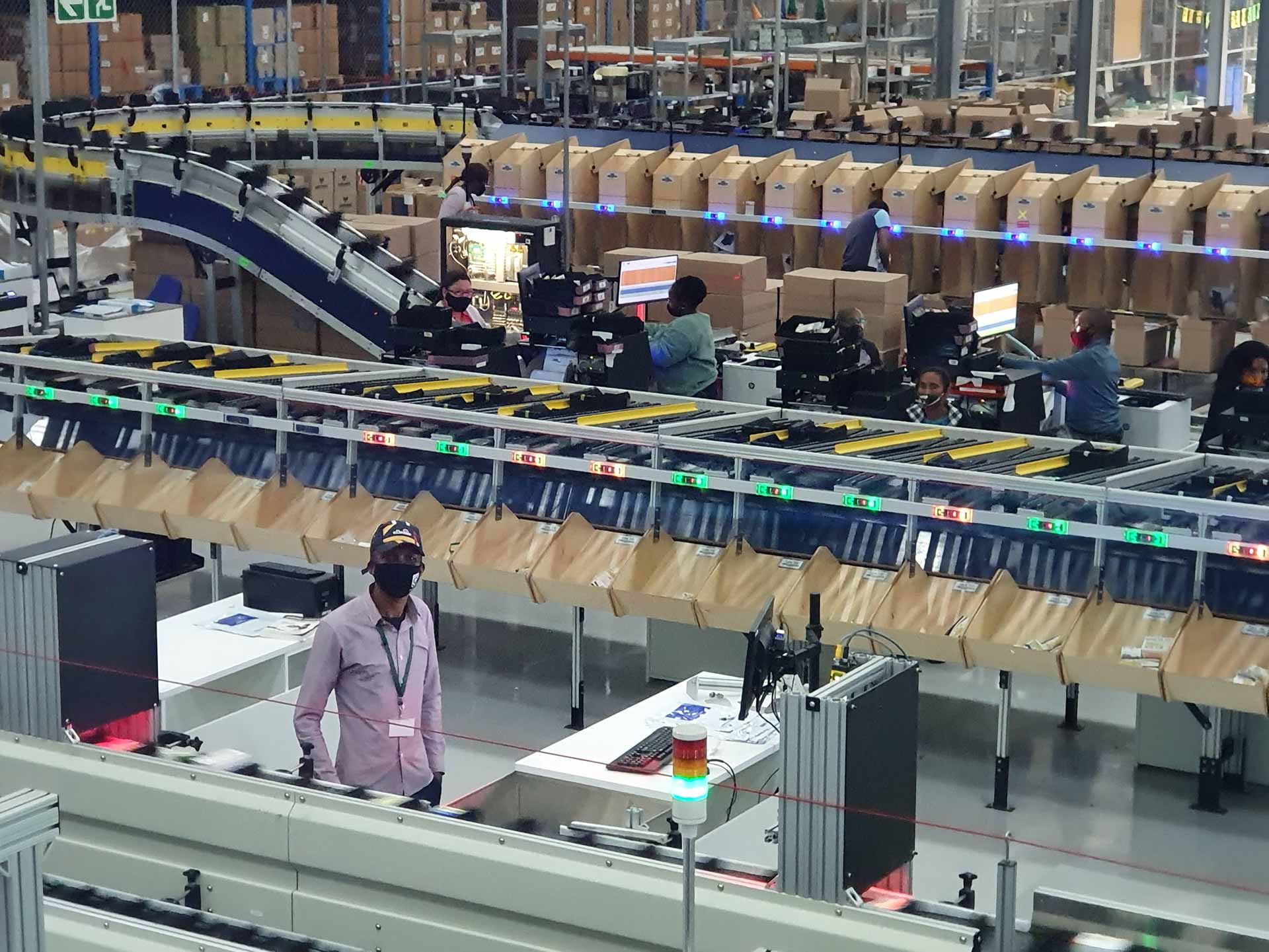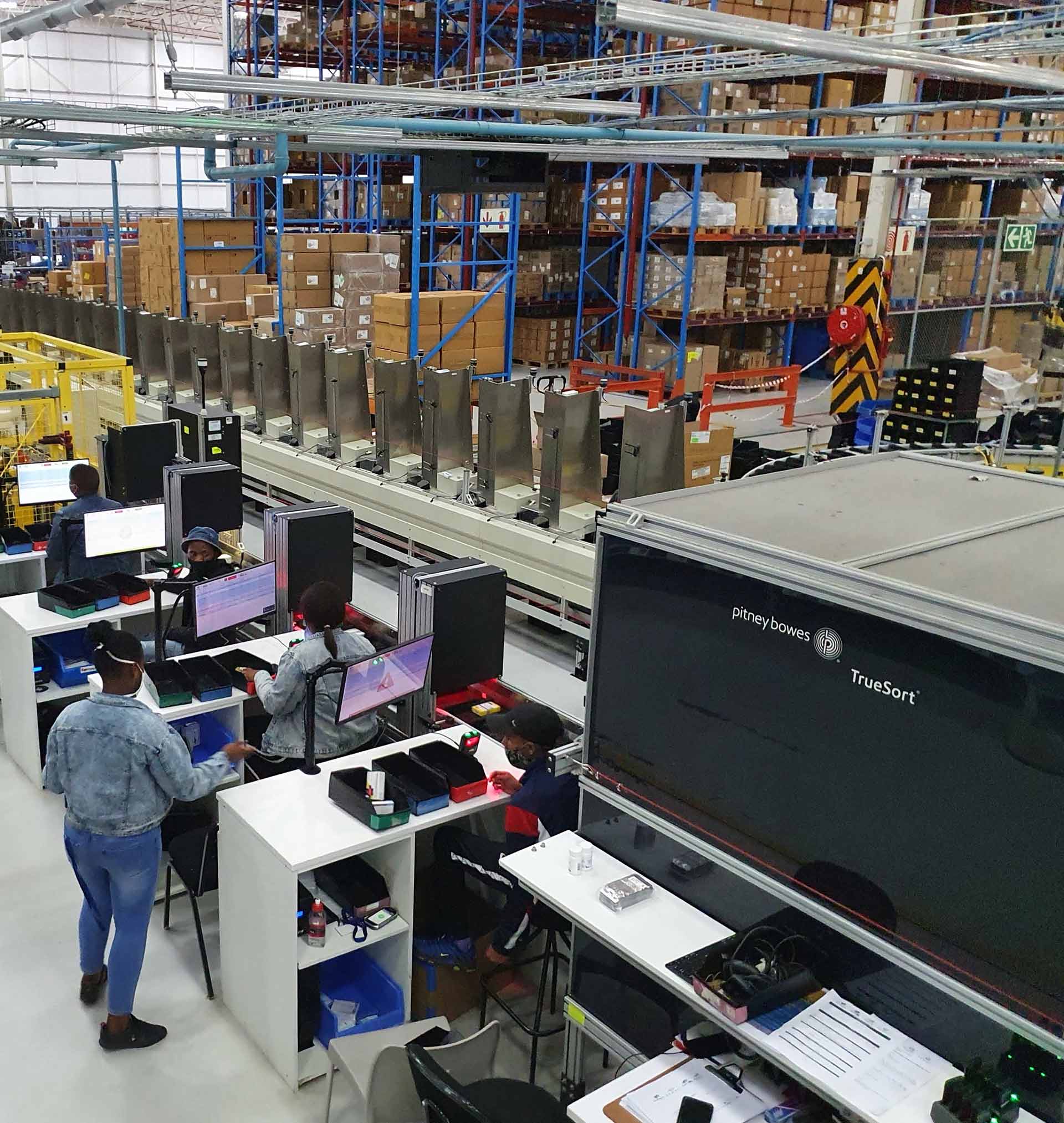Medicine parcels help patients to stay safer at home
November 20, 2020
The Chronic Dispensary Unit (CDU) is an advanced and highly specialised automated chronic medicine dispensing, sorting and parcel assembly line in Parow, Cape Town. The CDU is a contract between Western Cape Government Health (WCGH) and Medipost Pharmacy. Between the beginning of 2020 and the end of September, 3.8 million medicine parcels were dispensed from the CDU for patients with chronic health conditions.
High-tech dispensary almost doubles daily capacity to meet lockdown demand
The state-of-the-art Western Cape Government Health (WCGH) Chronic Dispensary Unit (CDU) in Parow, Cape Town, has moved into high gear this year, helping to reduce the risks of chronic patients contracting Covid-19 through preparing their medicine parcels for home delivery and collection at designated collection points at healthcare facilities during the national lockdown.
“More than 84 000 additional stable chronic patients have been registered for this service since the start of lockdown, and the CDU has ramped up its capacity to more than keep pace with this increased demand,” says Ludo Tandt, general manager of the CDU.
The CDU, a contract between WCGH and Medipost Pharmacy, was already dispensing an average of 16 500 to 18 500 parcels per day prior to the pandemic, however the daily average is now up to 32 000 parcels per day. From the start of 2020 to the end of September, 3.8 million medicine parcels were dispensed from the CDU.
Western Cape Minister of Health, Dr Nomafrench Mbombo, points out that long before the global pandemic, the WCGH was working to decongest healthcare facilities, thereby strengthening health systems while simultaneously improving the patient experience.
“For almost 15 years, the department has delivered pre-packaged patient medicine parcels for stable chronic patients to either Department facilities and clinics, or alternate collection sites to reduce waiting times and alleviate the need for patients to queue at pharmacies,” Dr Mbombo says.
The establishment of the CDU’s advanced and highly specialised automated chronic medicine dispensing, sorting and parcel assembly line in 2018 enhanced operational efficiencies, in turn creating more capacity in the Department’s hospital and clinic pharmacies for patients’ acute medication needs and in-person consultations.
“With the advent of Covid-19 there was a need to limit opportunities for this highly infectious viral illness to spread, especially among individuals with pre-existing health conditions, while still ensuring patients have access to their prescribed chronic treatment,” WCGH Head of Department, Kim Lowernherz adds.
The Department quickly established a system to ensure patients living with a stable chronic health condition could receive their medicine parcels via home delivery, with over 100 000 parcels delivered safely and conveniently to patients in their own homes since the start of lockdown.
“Through existing community-focused health structures, the medicine parcels dispensed by the CDU are disseminated through partner non-profit organisations to community health workers, who then deliver the parcels to patients.”
The CDU’s medicine dispensary system was specially designed to fulfil the specific and stringent requirements of the Western Cape Government Health for preparing and despatching large volumes of medicine parcels each month.
“These medicine parcels are a vital tool in the provision of Community Based Primary Care, bringing healthcare services closer to patients so that they are more convenient and accessible,” adds Noel Guliwe, chief executive officer of the Medipost Holdings group, which operates the CDU on behalf of WCGH.
“The CDU is therefore optimising and expanding to ensure sufficient capacity to fulfil the anticipated future demand for this successful service. Planning is at an advanced stage for a second dispensing line to be introduced by the end of the year, growing capacity for an additional 20 000 patient scripts to be processed per day.
“Chronic medicine is a vital lifeline, and this innovative use of local partnerships and world-class CDU technology has fulfilled an important role in keeping patients’ health conditions well managed during the pandemic,” Guliwe concludes.














